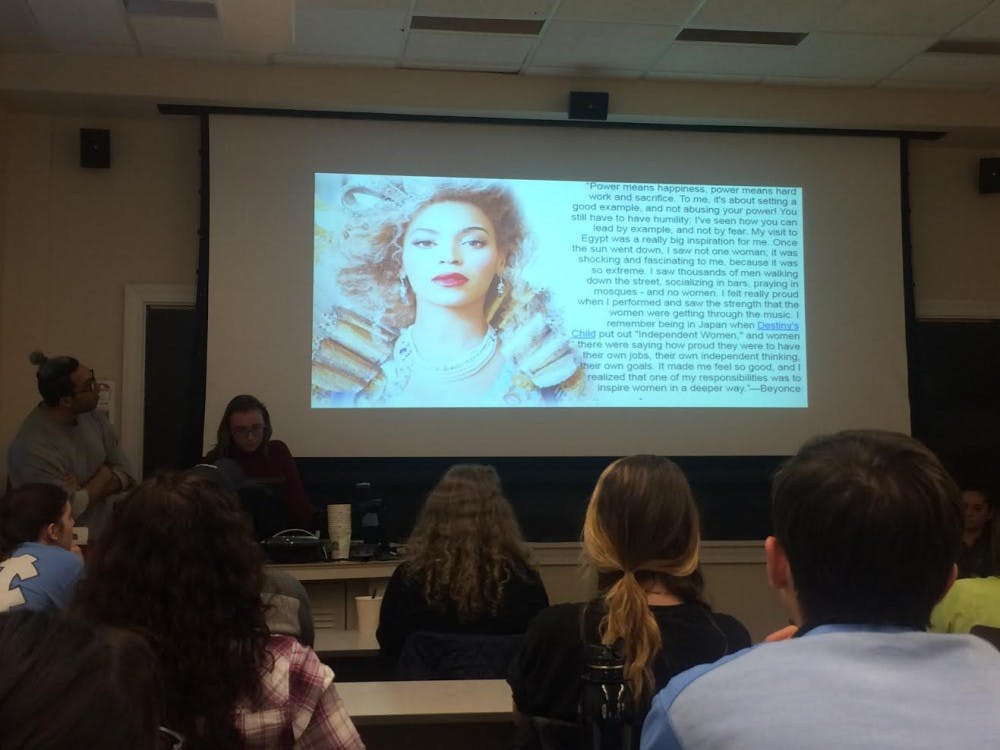After Monday night's Grammys, UNC students partnered with the Carolina Women’s Center Wednesday to host a discussion panel focusing on gender, music and Kanye West’s penis.
The event is part of a Media Literacy series hosted by the Carolina Women's Center that aims to increase awareness of gender issues in the media that perpetuate asymmetrical power structures.
“We have all this info on how gender relates to everything all the time and we want to talk about it,” said Emily Hagstrom, a sophomore public policy and political science major who facilitated the event.
The discussion began with members asking a series of “Did you know?” questions such as "Did you know that only 53 of the 153 nominees for a Grammy were women?", "Did you know that in the top four categories, only two slots were filled by women?" and "Did you know that this year, in the top four categories, only one woman of color was nominated?" A few attendees nodded their heads. Of those in attendance, many guessed correctly.
"This is a pretty diverse year for the Grammys,” Hagstrom said.
As a supposedly standout year in diversity, students discussed the gains made in a year by the Grammys, which represented more women, ethnicities and musical genres. Unlike the 2015 nominations for Album of the Year, where Beyoncé was the only female nominated, the 2016 nominations doubled the number of female candidates with Taylor Swift and Alabama Shakes, which is led by a woman.
Organizers played Taylor Swift's Album of the Year acceptance speech, which contained a not-so-subtle stab at Kanye West’s controversial lyrics, in which he suggests he and Swift may have sex because he helped her get famous. West's lyrics animated the room.
“Look, I’m Kanye. Look how great I am. Look how great my dick is,” one student said.
For many students in the room, West's comments embodied the worst aspects of gender and music, especially the role of women — who lack autonomy over their images, and are frequently forced to accept lower wages than their male counterparts, adopt a sexual persona and then get criticized for it by the media.




